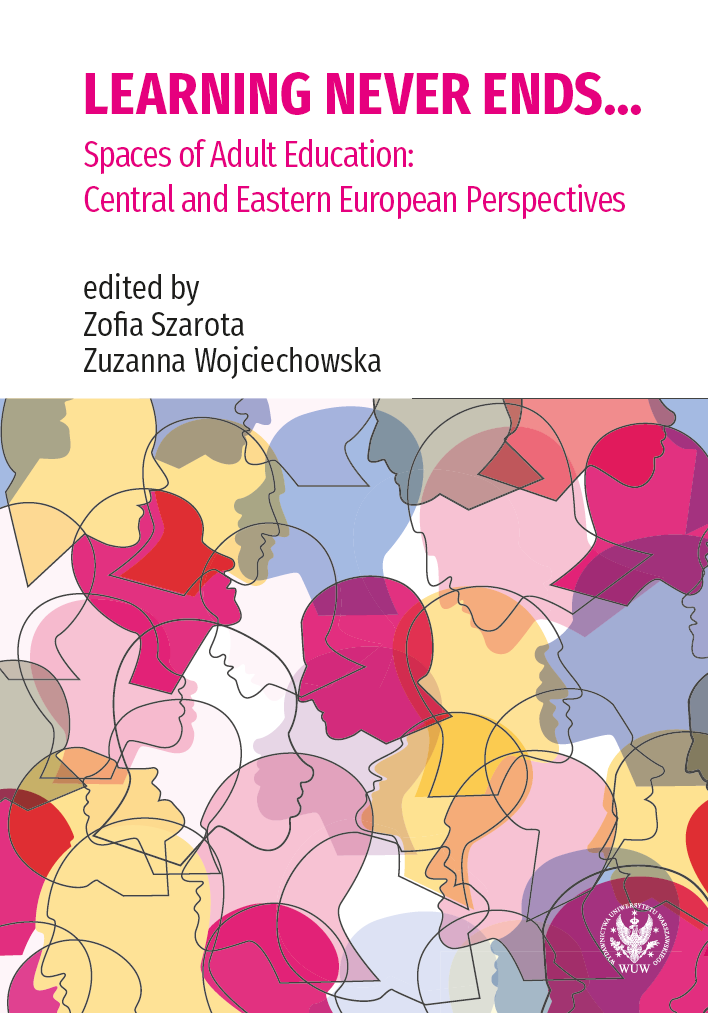
ON POLISH RESEARCH INTO ADULT-LEARNING SPACES
The aim of this research was to identify leading problems within Polish andragogical discourse. The chapter’s content was guided by answers to the following questions: what topics are most commonly being explored, and what most interests Polish andragogues? Academic articles published from 2014 to 2018 in four specialist journals were examined in the research. A qualitative method was used in the process of analysing the content of the articles. The keywords listed were grouped into clusters and issues, and analytical categories were identified for use in developing a typology of research issues: 1) the domain of andragogical reflection, with subcategories: theory, methodology, subject of analysis; 2) formalised teaching processes; 3) competences, consultation, labour market – a subjective perspective; 4) development tasks, problems and conflicts in social roles; 5) spaces of development, animation and personalised learning. The present research highlights the vast area of Polish androgogical research, thus widening the boundaries of the research field, going beyond formal learning spaces and exploring microworlds of individuals and social problems.
More...